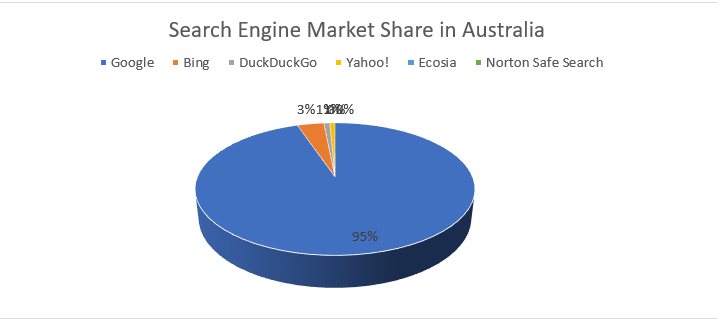Search engines are the most popular means of sourcing information, from news and updates to random trivia. It is no surprise that ‘Google’ is the first word that pops into your mind when anyone mentions search engines, but did you know that other search engines exist, and that people use them every day?
How Do Search Engines Work?
To put it simply, search engines follow links – for example, links that connect web pages. These links allow search engines to ‘crawl’ through the internet, collecting data to show to users like yourself.
A search engine such as Google is made up of three components:
- Spiders or Bots – Their purpose is to follow links on the internet 24/7. Spiders explore text, images, videos, and news items that may be relevant or interesting for a search engine to display.
- An Index – After a spider/bot has visited a website, it automatically saves the HTML version of the page in a database known as the index. If you update your website with new pages or content, a spider will detect this during its next visit, and update your site in the database.
- An Algorithm – Following the indexing, a search engine’s algorithm uses data from the index to evaluate where to rank a website in search engine results, based on specific search queries. It is generally unknown as to how Google’s algorithm works out the ranking position of websites.
Top 5 Search Engines Used by Australians

Can anyone imagine what it was like before Google’s search engine existed?
Earlier search engines such as AltaVista and others ranked websites based on the number of times a keyword appeared on a page. Experts soon realised that website developers’ used tactics like keyword stuffing in their websites to rank higher, even if their content were unhelpful, they would still rank.
However, once Google’s search engine was established, they recognised this problem and decided to consider other factors when forming the search engine results. For instance, the authority of the website, technical SEO, and page speed.
Bing
Bing is the second most popular search engine used by Australians. Founded by Microsoft in 2009, Bing is often assimilated into other Microsoft products such as Office tools and its operating system. This search engine was previously known as MSN Search and Live Search.
DuckDuckGo
Developed in 2008, the DuckDuckGo search engine has appealed to users by promoting itself as an anonymous search tool. It contends that their platform does not collect IP information, keep search data, or use cookies.
Yahoo!
Powered by Bing, Yahoo! Search is a less popular search engine which also offers news and an email platform.
Ecosia
Ecosia is an environmentally focused search engine. This search engine may be unheard of, but its search results are sourced from Bing, then circulated through its own algorithms. Ecosia claims to fund the planting of a new tree for every 45 searches in their system.
Everyday internet users such as you and I have to ask, what would worst-case scenario mean? How would we scour the internet for news, facts, products, and services if Google were down?
Although unlikely, Google’s search engine is online and all online systems can ‘go down’, similar to other websites having downtime. This is when other search engines – such as Bing or DuckDuckGo – have a chance to shine.
Mink Media has considered these scenarios and will ensure that your website will show up on every search engine (not only on Google). The websites we create and manage are search agnostic, meaning your website will be live, reachable, and appear in its correct ranking, even in other search engine results.
Interested in finding out more? Get in contact with the friendly Mink Media team here.



Final Thoughts: What If Google Does Go Down?